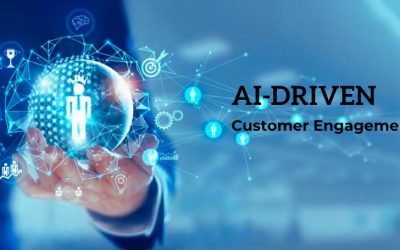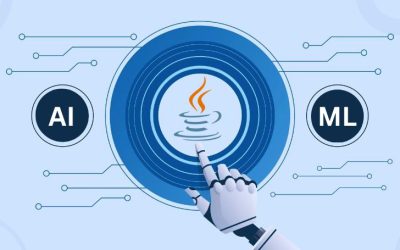AI is hot and omniscient; it is predicted to bring a revolution across industries. Yet for many entrepreneurs, it is an enigma that fills them with doubt and fear. Fellow entrepreneurs have no fear. This blog aims to reveal the truth beneath the supernatural illusions. It differentiates hype from real-world applications that can help your business succeed with AI.
Beyond Science Fiction
Let’s start by debunking the first illusion: AI doesn’t mean robots taking charge. Consider it a powerful tool that can analyze data and identify trends, similar to AI in certain fields. It does not replace human expertise but adds to their knowledge base. It frees you up to focus on what counts as more strategic businesses.
AI in Action: Real-World Examples

Now, let’s move beyond theory and see how AI is transforming various industries:
Retail: Imagine chatbots delivering tailored product recommendations or answering customer queries round-the-clock. AI changes the customer experience with a brand, which affects satisfaction and sales.
Finance: AI algorithms immediately pick up illegal transactions, guarding your financial information and saving you loss.
Additionally, AI-powered personalized financial advice can help consumers make informed decisions.
When equipment failures are anticipated before they occur and averted through AI, the outcome is fewer interruptions to manufacturing processes and increased operational efficiency. Example: Picture sensors in your production area. They signal you before one of the machines essential to production needs maintenance, thus catching disruptions before they become costly.
Healthcare: This is perhaps the most promising area for AI at present. AI-powered systems analyze medical images with astonishing accuracy; earlier diagnosis and personalized treat- mint plans can be expected as a result. For example, consider AI helping doctors detect cancerous cells at an early stage and perhaps save lives. Such benefits are just a sampling of the potential uses.
Here’s How AI Can Benefit Your Business
Increased Productivity: Automation for routine work liberates manpower and brainpower that can be invested in more thoughtful innovation. Increased Effectiveness: Instead of making decisions on an ad hoc basis or otherwise without hard information, you can get hard data (and projections) to guide your decision-making and operational management (my interpretation). Strong data leads to better decision-making.
Enhanced User Experience: Personal interactions, proactive support, and around-the-clock availability are more than today’s customers expect.
Reduced Costs: Eliminate errors, use resources in a balanced way, and catch financial losses caused by fraud in banking. Personal interactions, proactive support, and around-the-clock availability are more than today’s customers expect.
Zeroing in on the Source: Popular Misunderstandings Please let me address a few common issues about
AI: Misunderstanding 1: AI is too expensive for small businesses. Fact, Close to home: AI applications that are both affordable and capable of producing a measurable return on investment are now widespread. Start with something small and expand as your business becomes clear.
As far as myths go, people often say that artificial intelligence (AI) will lead to mass unemployment. If we look at the evidence, however, AI only really handles tasks, not whole jobs. The emerging dominance of AI thus leaves people both free and better qualified to do the higher-ordered work of tomorrow.
The myth: Implementing AI is complex and requires technical expertise. Reality: However, with user-friendly platforms and cloud-based solutions that even fit businesses of all modest sizes now AI is increasingly accessible.
Next Step:
Ready to jump into your AI journey? Here’s a practical guide for you to follow.
- Define your business goals and obstacles. Which parts of the business can potentially be improved by AI?
- Take a look at what AI solutions and tools are available. Why not start by seeing if some big names offer free trial versions?
- If necessary, get expert advice from AI experts on how to build a tailor-made implementation plan.
Small and iterative. Don’t attempt a full-scale restructuring all at once. Choose a specific area of AI integration that you think will work and see if the results bear this out before expanding further.
It is important to emphasize once again that AI is not magic. Strategic application of this valuable tool can bring significant financial and consumer benefits to your company. By understanding the real-life benefits of AI applications and not just sticking to the hype, you’ll one day be able to use them to outperform competitors. By doing so, you are taking your company to the next level to enjoy a blooming bloom of prosperity.
Beyond Science Fiction
The first myth we need to dispel is this: AI today is not the robot taking over the world (yet). Think of it instead as a set of powerful tools that can process data, recognize patterns, and draw predictions, mimicking human intelligence in task-specific terms. AI will not replace human skills; On the contrary, it enhances such knowledge which frees you up to focus on more strategic ventures.
AI in Action: Real-World Examples
Now, let’s go beyond the theories and look at how AI is changing various industries:
Retailing: The current king is personalized service. Chatbots that provide tailored product recommendations or answer customer questions 24/7 are revolutionizing both customer service and sales, increasing satisfaction rates and follow-up orders.
Financial Services: AI algorithms detect errors better than any human. That means they can catch fraudulent transactions in real time, protect your money, and prevent losses. Additionally, AI-powered personalized financial advice helps consumers make well-thought-out choices with confidence.
Manufacturing: Visualize a production line with sensors capable of telling you before a vital machine has gone wrong. AI-driven predictive maintenance anticipates failures in equipment before they happen, cutting down on downtime while making plant lifetime operating costs even lower than their historical levels say they should be.
Health Care: Intelligent systems without power can perform exceptionally accurate X-rays, helping with earlier diagnosis and original treatment plans. What if AI could help doctors spot malignant cell mutations? It means that lives that would otherwise be lost can be saved.
The Benefits for Business
This lists only some of the possible benefits. So how can AI truly help your business?
Better Efficiency: Let technology handle repetitive jobs like data entry or client inquiries, and free your most insightful employees for systematic thinking and innovation.
Data-Driven choices: Explore your business data to uncover trends and stay ahead of the curve by using predictions that help guide your decision-making with confidence.
Focus on Client Needs: Go beyond satisfying your client’s needs or making sure they don’t suffer from anything. With a friendly attitude and specialization in distraction or proactive support – as well as around-the-clock service – you’ll far exceed expectations of what’s good, creating loyal customers for life.
Cost Clarity: Eliminate mistakes, use your resources more efficiently, and stop financial loss from happening: by identifying fraud you can improve the quality of your bottom line.
Correcting Misunderstandings: Some Misconceptions
Let us address some criticisms about AI
Myth: AI is only for those with large budgets, small in-house teams, and offsite developers. Fact: The costs of artificial intelligence are coming down, and the benefits can be considerable. Start small – and expand as necessary according to your business growth phase.
Myth: AI is going to take your job. – Reality: Artificial intelligence may be automation, but it also creates new roles for humans. By bringing out people’s creativity in other ways than simply repeating existing methods (which we’ll discuss more later), it offers the potential for real career improvement and far more interesting professional prospects.
Myth: Deploying AI is overwhelmingly technical. -Reality: Cloud-based solutions and user platforms are being designed to make artificial intelligence ever more accessible to companies of all sizes.
Ready to embark on your AI journey?
Here’s a checklist of practical steps: Figure out your business objectives and core functions. Where could AI potentially bring change? Either it increases circulation, and emotions or advances data insight. Start with well-known providers and consider free test options to take the plunge. Get expert advice when necessary.
Seek the assistance of AI Software Development Company to create an implementation plan that is tailored to your actual needs and resources. Begin with a small step and refine from there. Don’t try to change everything at once. You can finally enter the IoT space in question, implement AI in a specific area, measure on impact, and expand out as you go along with your results.
Remember that AI is not a panacea; rather it is a sharp tool When used tactically in business, companies can expect to cut through much more than just wire. By breaking away from the myths and getting a handle on practical applications, you can use AI to take the lead in your field give your workforce real clout, and put your company on its way. Embracing AI Responsibly: Ethical Issues
While AI offers lots of exciting new possibilities, responsible development and implementation are essential. Concerns about bias, privacy, and fairness are major ones, and meeting these makes the public trust AI and benefits all of society.
The Curse of Bias: AI algorithms learn from data, and biased data leads to biased outcomes. Imagine a system for loan approvals that was trained on historical data that discriminated against certain demographics. Identifying and mitigating bias in data collection, algorithms, and deployment is crucial.
In this Responsible Artificial Intelligence Development context, special effort is made to actively collect comprehensive data sets from diverse sources, employ fair-minded programs, and periodically review for bias. Correcting ripe potential AI mistakes: As AI can gather and analyze large amounts of data, people are becoming more concerned with privacy.
Imagine that facial recognition technology was used to target advertisements without asking for your approval first. Transparent data collection practices, clear communication about how data is used, and robust security measures are all needed to keep privacy in existence. People need to have control over their own information. Responsible AI development also strives to respect user privacy through anonymization, opt-in options that make sense, and transparent deletion policies for all data.
Quest for Fairness: The decisions made by AI that affect our lives must not only be fair, but they should be explainable too. Consider an AI court of law powered by criminal justice algorithms hidden from view, dispensing unfair verdicts. Fairness demands that AI decision-making be transparent. Explainable AI (XAI) tools illuminate the hidden workings of algorithms, making how they arrive at conclusions apparent and thus fostering trust from humans who can then supervise. Furthermore, diverse teams of people designing and developing AI can help uncover any unfairness problems. A Trustworthiness Factor:
Dealing with these worries upfront instills trust and promotes responsible AI development. Here’s how:
Accept Ethical Guidelines: I not only accept ethical guidelines established for AI development, such as the European Union’s AI Ethics Guidelines…
Insist on human oversight: See human intervention at important decision points for AI systems, making someone accountable and minimizing any damage.
Invest in ongoing learning: Make training of staff part of the corporate culture, meeting issues of ethics in an active way as AI develops further.
Ethical Add-on Value: By emphasizing ethics, companies can take a competitive edge. In today’s market, consumers increasingly appreciate companies that responsibly develop and use AI. Showing that your business is devoted to responsible AI underlies transparency, inspires confidence, and recruits the best talent – a winning combination.
Just remember: this is only a taste of a vast world of artificial intelligence. By all means: go out there and research deeply and when you have questions come back and ask some experts.
“10 FAQs About AI”: Debunking the Buzzword
Q. But what is the real AI?
ANS: AI refers to artificial intelligence, machines that can imitate human intelligence in certain ways and subjects. Think about judging data, identifying patterns, and forecasting:” But this is not robots. It is a set of powerful tools to enhance human abilities.
Q. Is AI more expensive for my business?
ANS: Actually, No! Many cost-effective AI solutions accomplish different things and can be very cheap. Start with a small one and scale it up as You begin to see the benefits.
Q. Will AI replace my job?
ANS: Doubtful. AI disposes of regular Tasks allowing humans to engage in strategic thinking at a higher level. It is about teamwork Rather than an end to someone’s career.
Q. Is AI dangerous?
ANS: Any technology has potential risks and AI development should be responsible development, in considering bias, privacy, and equity. By following ethical guidelines and having human supervision, we can Just as safely use AI.
Q. Which industries are the big users of AI?
ANS: AI is already changing many industries, from healthcare (analyzing medical images) to retail (individualizing recommendations within the store) and finance (detecting fraud). There are a million applications, and all the time they’re growing still further.
Q. How would AI be a workable tool in my organization?
ANS: List all your key problems and aims. Investigate AI options that fit your criteria and purpose. Try to take part in a free trial or go for expert advice as you take your first steps.
Q. Do I need specialist know-how to use AI?
ANS: With a lot of user-friendly platforms and cloud-based solutions, there is no technical expertise necessary.
Q. What is the greatest AI benefit to businesses?
ANS: Increased efficiency, data-driven decision-making, customized customer experiences, optimization of costs – and much more.
Q. What issues of ethics will arise around AI?
ANS: Possible prejudice or artificial intelligence failure, privacy concerns, fairness – these ought all be put on the table. Choose teams of developers that represent a variety of different backgrounds, get rid of biased data, and make clear your priorities for transparency in AI development
Q. Where can I get more information on AI?
ANS: There is a range of online resources, industry reports, and courses. Visit relevant websites, follow webinars, and connect with AI experts to increase your understanding.
Remember AI is a journey and not just a destination. Start small, stay informed, and make ethical considerations a priority if it is to be used in your business. This also opens the door for an ethical future.







